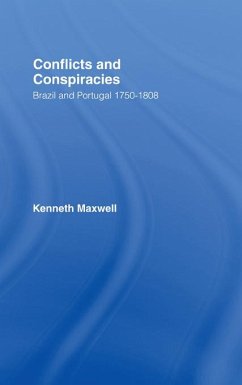A study of Brazil during a critical formative period which illuminates the causes of her special historical development within Latin America. Professor Maxwell analyzes the shifting relationships between Portugal, England and Brazil during the second half of the 18th Century. Through his study, Professor Maxwell is concerned with the social, economic and political significance of the events he describes. An important part of this work is a study of the Minas Conspiracy of 1788-89.
Dieser Download kann aus rechtlichen Gründen nur mit Rechnungsadresse in A, B, BG, CY, CZ, D, DK, EW, E, FIN, F, GR, HR, H, IRL, I, LT, L, LR, M, NL, PL, P, R, S, SLO, SK ausgeliefert werden.
"This brilliant monograph has long reigned as the premier treatment on the origins of Brazilian independence. It has no equal and richly deserves a new readership." -- Thomas Skidmore, Brown University
"This attractive edition should make the Luso-Brazilian world of the late eighteenth century more accessible to English-language readers, especially those interested in the empires of the Atlantic World." --Mary Karash, Oakland University, Rochester, Michigan
"This attractive edition should make the Luso-Brazilian world of the late eighteenth century more accessible to English-language readers, especially those interested in the empires of the Atlantic World." --Mary Karash, Oakland University, Rochester, Michigan


